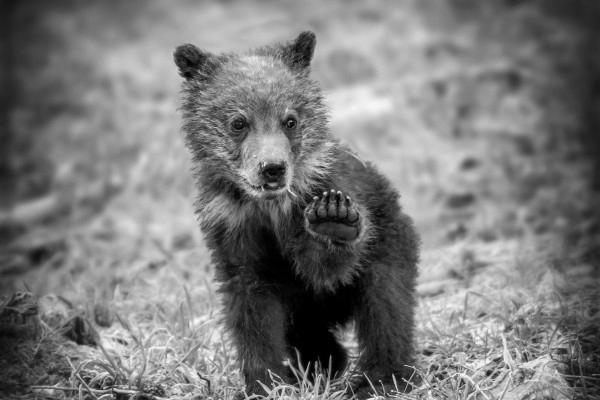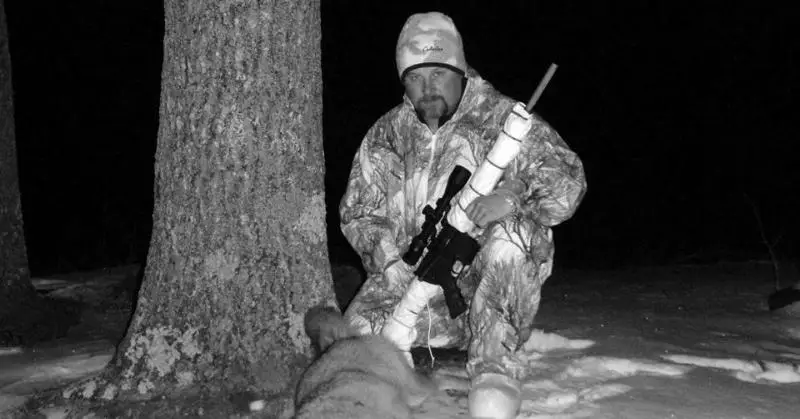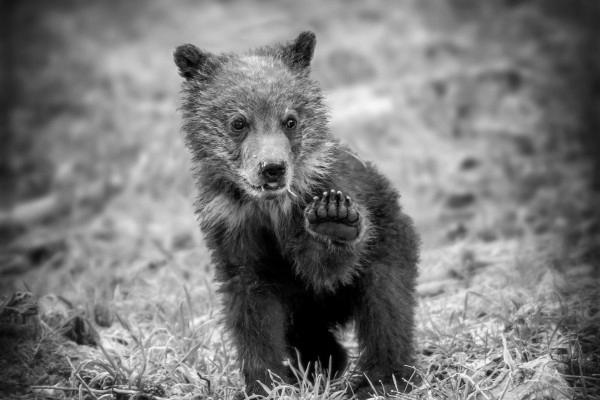Whether you are a hunter, a conservationist, or a biologist, you have probably been thinking about the issue of why do we the US still allow the hunting of games. Incentives for landowners to allow hunting, conflicts with other species, and threats to wildlife populations are all reasons for keeping the hunting of these animals legal. In contrast, sound management of wildlife populations has been the driving force behind the legalization of hunting for the past 50 years, with some states allowing public hunting in national parks.
Conflict
In the last few years, the Trump administration reversed an Obama administration rule to allow hunting of wolves and bears. Since then, the government has delisted wolves in Idaho and Montana, allowing hunters to kill them on public land, often by snowmobile or by burning them in their dens. The Biden administration appears unconcerned with the slaughter of wolves on federal lands, despite a recent statement from Interior Secretary Deb Haaland. However, in 2021, newly elected conservative state lawmakers are poised to seize control of wolf management and significantly liberalize hunting regulations.
While hunting is used for both recreational purposes and to control nuisance wildlife, some individuals find the issue complicated and difficult to understand. Many people oppose hunting as it relates to safety and ethics. As a result, the conflict over hunting of game animals in the US continues. Despite the controversy, there are still numerous ways in which hunters can protect these animals while respecting the rights of others. And if you’re someone who enjoys eating meat, you’re likely to have a different opinion.
In the early twentieth century, the United States government began establishing bounties on coyotes. This practice has been justified as a means to prevent human-wildlife conflicts. Moreover, it is cheap for taxpayers, as hunters kill deer at no cost to the government. Furthermore, state wildlife management agencies are funded partly or fully by the sale of hunting permits. While these benefits are laudable, some hunters argue that killing the animals is a better option than letting them starve to death. Additionally, the ritual of hunting has deep roots and is associated with traditions and ritual.
Incentives for landowners to allow hunting
Many landowners benefit from offering free hunting opportunities to hunters. Others choose to charge a fee for the opportunity, which can be as high as $7,000 per hunter. In some places, hunting elk and deer can bring in as much as $3,000 or $4,000. Landowners who allow hunting are expected to provide quality services and an enjoyable hunting experience. Some landowners find this arrangement to be an excellent option.
While landowners benefit from the economic gains and minimal punishment, they also harm the conservation of the endangered species. Efforts to protect these species only succeed when government agencies and extreme environmentalists intervene. Creating incentives that serve both parties will help conserve the species. However, landowners must balance their gains and losses carefully. A successful incentive program must be carefully monitored to avoid increasing tensions and frustrations among landowners.
While private landowners can be encouraged to offer hunting opportunities to visitors, they should always consult with the government regarding their own conservation and wildlife management goals. For example, the Voluntary Public Access and Habitat Incentive Program (VPA-HIP) provides funding to state and tribal governments that help improve wildlife habitat. It is important to note that the program is not limited to game animals, and landowners can receive the funds for other non-game activities.
Incentives for landowners to allow hunters to access their land should be accompanied by written agreements that address the rights and responsibilities of hunters. The program is currently underway in Ohio and pays landowners between $2 and $30 per acre per year. Payments are based on property characteristics and the recreational opportunities provided by the land. Enrollment contracts usually last two to three years and can be renewed if needed. Hunters should follow rules and regulations set forth by the government to ensure that they do not cross a boundary.
Threat to wildlife populations
It has long been a debated topic whether hunting is harmful to wildlife populations. While hunting game animals can help control populations, it also poses a threat to natural ecosystems. Overpopulation of prey species can lead to other animal species suffering from starvation, disease, and even extinction. Hunting also introduces exotic «game» animals that threaten native wildlife and established ecosystems. The environmental impact of hunting is not always obvious, but it can be devastating to animal populations and wildlife populations.
The study analyzed data from 176 studies and quantified the effects of hunting on mammal and bird populations. It found that hunting reduces the number of species within seven to 40 kilometers of hunter access points. Furthermore, the researchers argued that hunting leads to the reduction of mammal and bird populations within these distances. The results of this study are relevant for conservation efforts and policymakers, because it highlights the negative impact of hunting on animal populations.
The threats from overhunting are numerous, but the most immediate concern is the destruction of habitat. The loss of habitat has already reduced habitat for large mammals and other animals. Moreover, hunting reduces the number of suitable places for the growth and predation of other species. These animals can even cause conflicts between humans and wildlife. The main causes of this crisis are climate change and habitat destruction. It’s a major problem that requires action on the part of all stakeholders.
In addition to deforestation and the use of snares, hunting is another major threat to wildlife populations. Hunting and other human-induced disturbances have already caused extinction in several species. Moreover, many indigenous communities rely on bushmeat and wildlife trade to support their lifestyles. These threats have also increased the demand for luxury goods and habitat destruction, resulting in depleted assemblages and missing species of sensitive species.

Sound management of wildlife
Congress should amend the MMPA to expand incidental take authorizations to all sound producers in U.S. waters, regardless of nationality. Substantive requirements and the negligible impact standard should remain intact. Though incidental take authorizations are unlikely to completely resolve the issue, they can assist sound producers in mitigating sound effects. A better management approach may also help producers improve mitigation efforts, such as by studying how marine mammals respond to sound.
North America’s approach to wildlife management is unique in the world. Wildlife in the North American Model is managed as a public trust resource, and is protected for the benefit of all citizens. The North American Wildlife Management Model holds that sound science guides decisions and regulations about wildlife management. Furthermore, conservation efforts are funded by user-pays and public benefits programs such as the American System of Conservation Funding. Sound management is essential to protect our natural resources and to promote sustainable communities.
While noise has a broad range of effects on wildlife, it affects the most threatened species and their critical habitats. For example, noise may cause the extinction of an endangered species. This is why federal agencies have mandated sound management. The study concluded that noise management in wilderness areas is critical. The study also found that noise exceeded natural levels in wilderness areas for only 12.1% of protected areas. This shows the importance of sound management in the United States.
The US has several sound management programs that protect our natural resources. These programs promote sound management and conservation and provide a unified voice on important fish and wildlife issues. Throughout the US, the Association of Fish and Wildlife Agencies represents all the fish and wildlife agencies and promotes sound management and conservation. It also provides information about sound requirements in parks. Its websites provide details about upcoming committee meetings. Further, the site is a hub for conservation efforts.
Regulations for hunting on public lands
Hunting on public lands is an excellent way to ensure a quality hunt. Often, the wildlife that inhabits public lands has little to no natural predator, so hunting helps maintain a healthy balance. The regulations for hunting on public lands in the US vary depending on the location of the public land. Hunting on public lands is not against the law, and the NMDGF recommends contacting local public lands management agencies before beginning your hunt.
Hunting on public lands has a long and proud tradition. While some regions encourage free public hunting, others discourage it. Farmers are often reluctant hosts, but many accept the tradition. However, many urban hunters abuse landowner hospitality. In fact, many state fish and game departments have begun to address the issue of landowner-sportsman relations. Although these concerns are still at an early stage, it is clear that many hunters have become dissatisfied with the current regulations.
In addition to the age requirements, hunting on public lands is also heavily regulated. Hunters must be at least 16 years of age and possess a duck stamp. Hunting on public lands may require permits or user fees, and some are managed by the Interior. Hunting on public lands requires safety training, proper equipment, and a thorough understanding of the wildlife you are targeting. While the regulations for hunting on public lands in the US are extensive, you can expect to experience a fun hunting trip.

There are several ways that the wildlife administrator can encourage more hunting pressure on certain public lands. For example, he may want to increase the pressure on certain areas that have been underutilized by most hunters. Some states have implemented this strategy to encourage heavier hunting. For example, in Colorado, hunting on the west slope of the Rockies is less heavily hunted than in east-side areas, and the early opening day of the season allows more hunters to go to a needed area.
Most areas don’t consider BB guns as firearms, which means it’s not illegal to use them in your neighbor’s yard. Pellet guns, on the other hand, use compressed air to propel a «bullet». They’re legal to shoot squirrels in their yard, although it’s best to avoid doing so on a public property, as the risk of injuring the animal is great. BB shots can kill the animal slowly, unless you happen to land on a lucky BB shot.
How to get rid of squirrels without shooting them
There are many ways to drive squirrels out of your yard without shooting them. Using repellants is an ideal first step. You will need to provide enough food and water to keep the animals out for a while, but it is the most humane way to get rid of these pests. If you can’t find a suitable repellant, try putting some human or dog hair in bird feeders and around the base of plants. Finally, you can use ultrasonic repellent.
Squirrels can also be removed by placing cotton cloths in areas where they like to visit. Cider vinegar can repel squirrels, but you must replace the cloths after some time, as the vinegar evaporates. Other repellents, such as kerosene, are also available to help with the problem. However, live cages are problematic as they have to be euthanized and released according to state laws.
While lethal snap traps can be effective, they cannot be used in residential areas. In addition to being dangerous, shooting a squirrel requires great aim and a shot can miss. If you miss, you could cause a painful death to the animal. Therefore, it is not recommended to shoot a squirrel when it is already in a home. If you can’t afford to kill it yourself, you may want to try using a squirrel repellant. You can also try removing the food source in the area to eliminate the squirrel problem.

Trapping is an excellent option if you can’t shoot them. This method can also be a good humane way to get rid of squirrels. If it isn’t possible, you can release the squirrel back into the wild or give it to a game individual. Some people, however, may want to shoot the squirrels, but it is not legal to do this outside the city limits.
Squirrels are difficult to kill because they are quick and have large, wide-set eyes that help them to see well in the dark. Besides that, they have excellent depth perception, which allows them to sense danger well before it even arrives. In addition to this, if you kill a squirrel, you risk exposing yourself to other hazards. The last thing you need is a dead squirrel in your home. It will attract flies, maggots, and other rodents.
Methods to kill game squirrels
There are several methods that can be used to kill game squirrels. However, these methods are illegal in some areas. To be legal, you need to apply for a permit and have a special firearm. A firearm is the most effective way to kill a squirrel, as it kills them instantly. But, you should follow the guidelines of the department and avoid causing any harm to other animals or people.
One of the most popular methods is to use traps. Traps are designed to capture and kill a single squirrel. They are also more effective than shooting them with a gun because they minimize risk. However, they might not work well if you have small children or pets in your yard. Trap laws vary from state to state, so you should always consult with a wildlife professional to find out what your legal options are.
Another method for killing game squirrels is to use poison. This method is illegal and may result in an arrest. However, it may be an option if you need to kill a squirrel for a pest control job. The poison contains a nut that lures the animal, and once it’s in your trap, it will kill it. But keep in mind that you’ll be confusing the squirrel and may end up killing it later.
In some areas, shooting a squirrel is legal. However, it’s still important to check with the Department of Environmental Conservation before you use any method. A permit is required for shooting a squirrel, so it’s important to check the regulations. Also, make sure that the shooting spot is in a well-protected area. Avoid shooting in the direction of a neighbor’s house.
Poison is a great option for killing a squirrel. Though it’s easy to obtain, not many squirrel poisons are available for sale. If used properly, these poisons will kill the squirrels immediately. Ensure that they’re not accessible to pets or children so that they don’t accidentally get into them. There are several other methods for killing a squirrel. The most powerful of these is to use poison.
Permit requirements
The rules for shooting squirrels for sport outside the city boundaries are relatively straightforward. You must have a valid hunting license to hunt the game. However, non-residents can hunt small game without a license if the land is used as a primary residence. You may also use lights to aid in taking the wildlife, but the restrictions for use of lights on public roadways still apply. Rifled slugs larger than No. T are prohibited as well as handgun ammunition and full metal jacket.
The permit will be issued only to the landowner or lessee, not a person who is under the age of 18. It is valid only for hunting on private property outside the city limits. The permit must be held by the permittee, their family members, or contractors, and they can only pursue squirrels with their permit. In some cases, they cannot transfer the permit to anyone else.
The permit is valid for two years. During this period, a landowner may trap the animals for sport within 100 feet of a public road, but not within the maintained right of way. This is a great way to catch squirrels for sport, but you must be aware of the restrictions. If you don’t follow the rules, your permit will be revoked. You may be able to get a permit later, but it’s better to be safe than sorry.
Ramifications of killing squirrels
If you’re looking to kill squirrels for sport, there are several ramifications to keep in mind. Not only could you get a fine, but you could also face icy relations with your neighbors. There are even laws about obtaining permits before killing an animal. For example, if you’re shooting a squirrel to make it smaller, you should not aim for the head. That’s not only illegal, but also against RSPCA guidelines.
The state of California has a similar rule for shooting squirrels. It protects birds and other wildlife, including gray and ground squirrels. In addition to that, it protects non-native tree squirrels, such as the Eastern fox squirrel. Shooting and using poison bait to kill tree squirrels is also prohibited. However, in some cases, the city may change its ordinance to allow residents to kill the squirrels without causing harm to them.
The state also has laws against poisoning squirrels. However, killing ground squirrels is legal if they’re damaging structures. Using poison that’s meant for other animals could cause a large number of other wildlife deaths. It might also cause a smelly mess that could linger for weeks or even months. You should avoid poisoning squirrels for sport outside of city limits if you’re not sure you’re following these rules.
While some species of squirrels are not suitable for hunting, others are. Gray and fox squirrels live in woodlots. The populations of these animals are managed by the amount of mast available. If the mast is plentiful, the gray squirrel population will thrive. This species also brings other species into the area, so killing them for sport may not be necessary. The ramifications of killing squirrels for sport are numerous.

